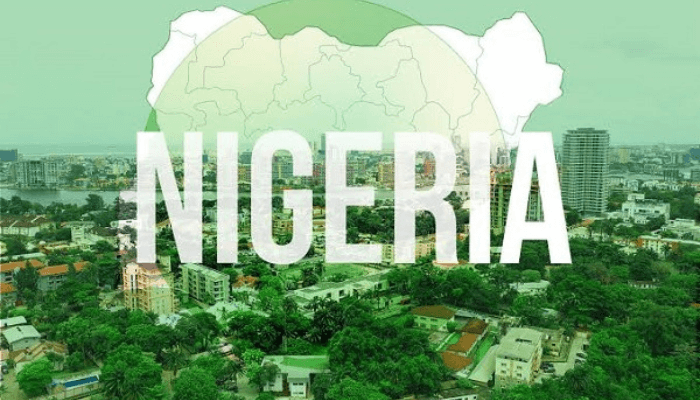Nigeria’s habit of mistaking motion for progress
Nigeria’s most persistent problems are rarely hidden; they are buried beneath performance. Policy announcements, project launches and headline statistics often mask the deeper systems that shape public life, incentives, information gaps and habits of decision-making. The country’s challenge is not the absence of data or reform plans, but its inability to look beyond appearances.
The habit of governing by surface signals has become institutional. Ministers are praised for briefings rather than results. Governors build roads without maintaining them. Each initiative seeks visibility before verification. The management concept known as the “iceberg of ignorance”, that senior leaders see only a fraction of ground realities, is not a metaphor in Nigeria; it is a governing principle.
This culture prizes speed over scrutiny. Citizens, weary of stagnation, demand quick fixes as urgently as politicians do. The result is a carousel of announcements, each claiming to mark a turning point, with few achieving structural change.
Read also: The Trial Habit
The economic picture tells a similar story. Growth reached 3.9 percent in the first half of 2025; reserves stand above $42bn; inflation has eased to about 20 percent. Yet food costs have risen fivefold since 2019, forcing families to ration meals and downgrade nutrition. A macro recovery that fails to feed households is, at best, statistical progress.
Headline improvements obscure the structural work left undone, modernising logistics, stabilising power, expanding irrigation, and improving market access. These are the reforms that determine whether growth touches lives. Instead, the state leans on palliatives: fiscal bandages on deep economic wounds.
Nigeria’s 2024 Corruption Perceptions Index score, 26 out of 100, ranking 140th of 180, captures the deeper malaise. Corruption is not the work of a few bad actors but a functioning system of political finance, procurement manipulation and regulatory capture. Periodic scandals are treated as isolated crimes rather than symptoms of design.
Real reform would trace how money moves, not merely who signs it. It would link promotions to delivery, not loyalty, and open contracting data to public scrutiny. Until then, exposure will continue to replace accountability.
“Real reform would trace how money moves, not merely who signs it. It would link promotions to delivery, not loyalty, and open contracting data to public scrutiny. Until then, exposure will continue to replace accountability.”
The political economy reinforces this superficiality. In 2022, a major party charged ₦100m for its presidential nomination form, a price tag that repels technocrats and rewards financiers expecting repayment. When political investment requires a commercial return, governance becomes transactional.
The consequence is a shrinking talent pool for leadership. Competent professionals stay away, dissent is punished, and decision-making bends toward patronage. A system that prices competence out of contention cannot expect evidence-based policy to thrive.
Some exceptions prove the rule. Lagos’ digital tax administration, Kaduna’s open-budget platform, and the Treasury Single Account adopted nationally show what can be achieved when transparency and feedback are institutionalised. These reforms endure because they are systemic, not symbolic. Yet they remain islands in a vast sea of inertia.
The way forward is not mysterious. Tie advancement in public service to measurable outcomes verified by independent panels. Cap campaign spending and publish real-time disclosures. Conduct post-project audits so lessons are retained, not lost. Strengthen local scorecards to make citizen feedback consequential.
Listening must have institutional weight. If agencies ignore data, budgets should reflect that failure. If regulators sleep through warning signals, mandates should lapse. The cost of ignorance must exceed the comfort of pretence.
Culture, however, will determine whether reforms stick. In any organisation, if truth is punished and loyalty rewarded, evidence will always yield to flattery. Beneath corruption lies the fear of scrutiny; beneath inefficiency, the refusal to face trade-offs. Reform is therefore both technical and moral, the courage to ask difficult questions even when the answers are inconvenient.
Read also: More than Solar Power: Powering progress, growth, and a sustainable future for every Nigerian
Some may argue that public visibility builds momentum and that symbolic reforms can evolve into substance. Perhaps. But visibility without verification breeds complacency.
Nigeria’s renewal will not begin with another slogan or summit but with a quieter revolution, a willingness to look beneath the surface, to measure what matters, and to prize learning over posturing.
Progress requires humility: asking why before who, how before when, and seeking feedback, especially from those who bear the cost of decisions. The country has no shortage of insight; it has a shortage of follow-through.
When systems begin to value depth as much as drama, Nigeria may finally bridge the distance between promise and performance. True reform starts below the waterline, where integrity, competence and national progress converge.

